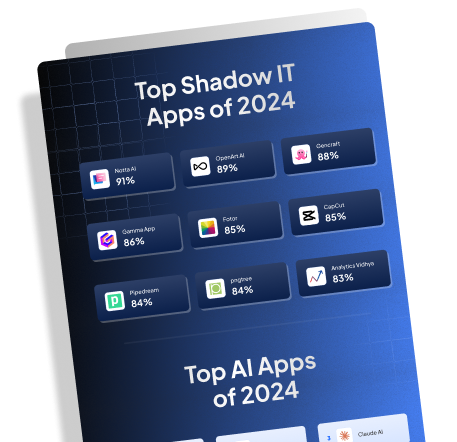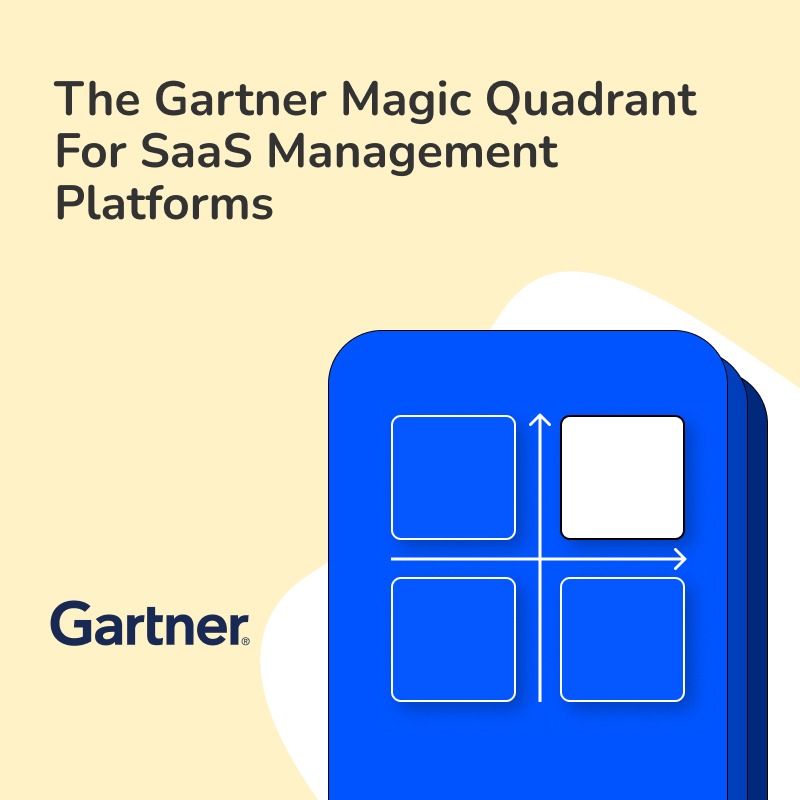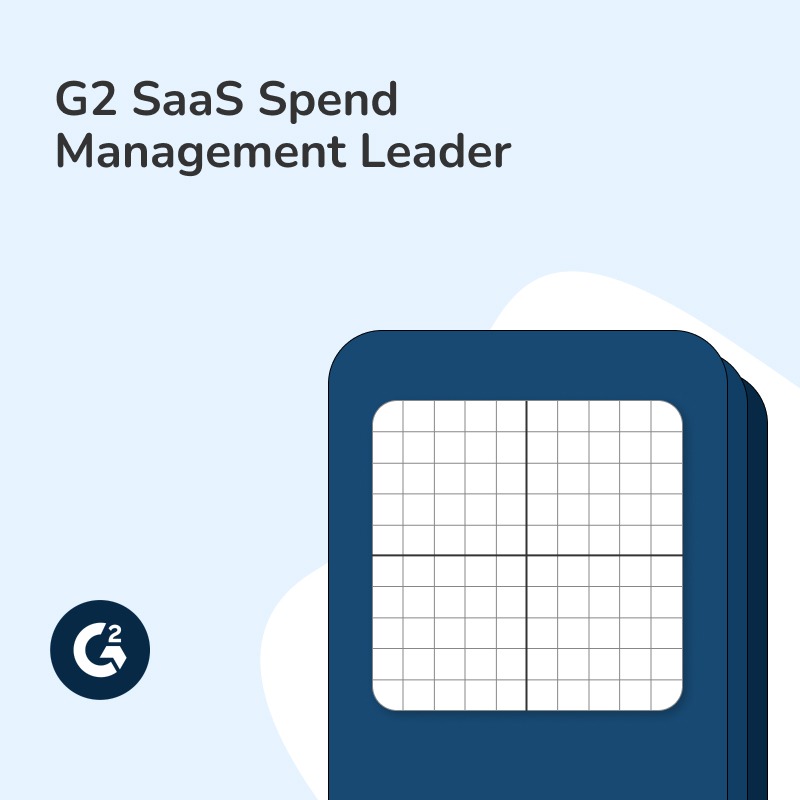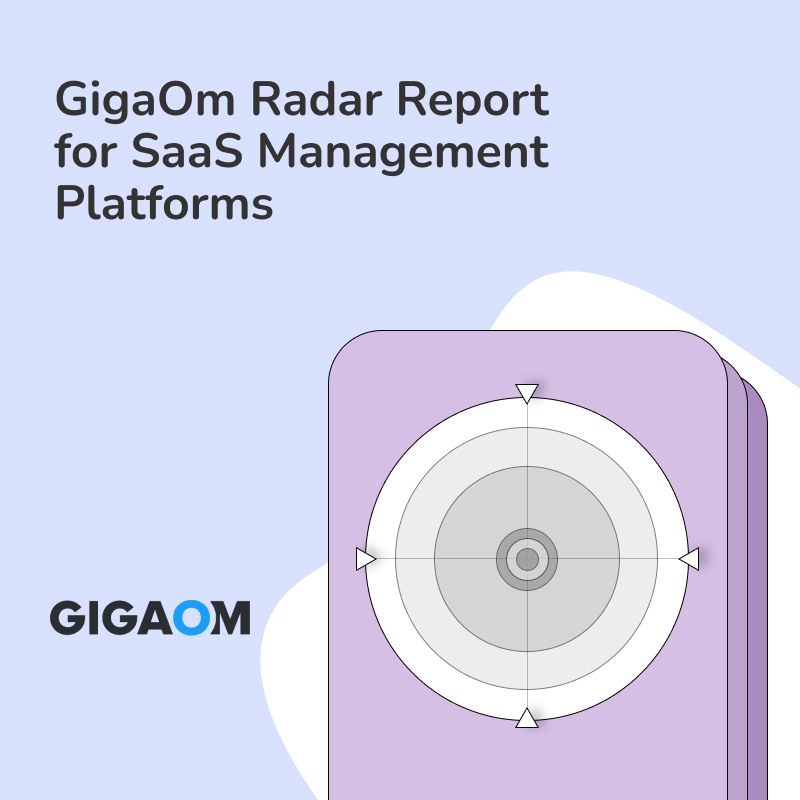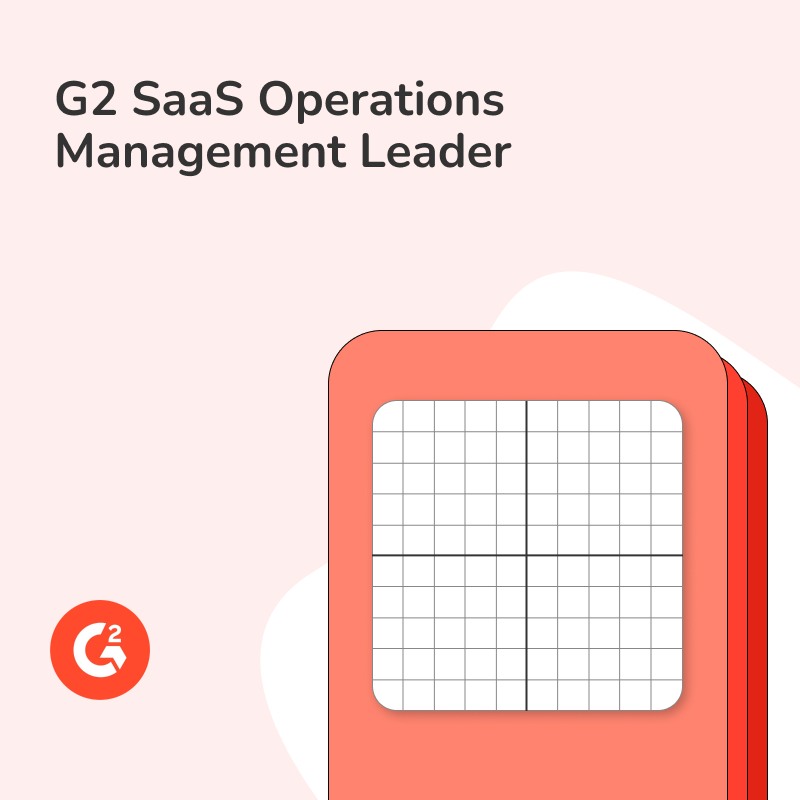CASB vendors, or Cloud Access Security Brokers, are the gatekeepers between on-premises technology infrastructure and cloud providers’ software as a service (SaaS) applications. These vendors offer CASB solutions designed to enforce security policies spanning a range of CASB features, such as visibility, compliance, data security, and threat protection. CASB solutions operate by consolidating multiple types of security policy enforcement.
Note: Are you struggling to manage your organization’s cloud security? Take control of CASB integration with our platform. Torii’s Shadow IT Discovery simplifies the process of discovering Shadow IT, enabling you to identify your organization’s true needs effortlessly. Check out Torii’s Shadow IT Discovery
Do you need help deciding which CASB provider to choose?
This is where a thorough CASB comparison becomes critical. The CASB market is crowded with various players with varying CASB pricing, deployment options, integration capabilities, and unique architecture. The top CASB vendors distinguish themselves through robust CASB functionalities, a user-friendly implementation process, and comprehensive security offerings.
Deployment and Integration: The spectrum of CASB capabilities varies broadly across vendors, and the details matter. Some vendors excel in providing easy CASB deployment and seamless integration with existing systems.
Security and Compliance: Others stand out for their CASB security and compliance services. The best CASB services offer a blend of both, ensuring that your cloud-based data is secure and complies with necessary regulations.
Evaluation: CASB evaluation involves assessing features and benefits per your specific needs. Technological compatibility, user-friendliness, and the particular nature of CASB offerings are all factors to consider. Evaluating each vendor’s ability to adapt and evolve to market trends is essential to sustain the value in the long run.
Ultimately, choosing a CASB vendor will hinge on your organization’s specific requirements, budget, and long-term IT strategies. Investing time in research, comparison, and evaluation secure a CASB provider that can be a reliable gatekeeper between your organization and cloud resources.
Examples of CASB Vendors
McAfee MVISION Cloud
McAfee, a full-fledged security company, offers a Cloud Access Security Broker through its MVISION Cloud product. This solution identifies cloud services and assesses risk levels, allowing IT managers to enforce policies and secure data. It also employs advanced threat protection mechanisms to instantly detect suspicious activities deriving from cloud applications.
Microsoft Cloud App Security
Microsoft’s CASB solution works hand-in-hand with its other security offerings. It provides essential features like threat detection, data protection, and assessment of application risk levels. Moreover, it employs advanced AI algorithms for user behavior analytics, securing cloud environments against abnormal activity. This CASB stands out due to its seamless integration with other Microsoft products and services, driving operational efficiency and management ease for IT directors.
Netskope
Netskope’s CASB solution offers real-time data and threat protection for the most popular SaaS, IaaS, and PaaS services. Besides identifying and assessing cloud services, it also provides granular visibility into and control over user activities across thousands of cloud services. Its unique Netskope Active Platform allows IT managers to ensure regulatory compliance and protect sensitive data no matter where it resides in the cloud.
Best Practices for CASB Vendors
Selecting the best CASB vendors can be daunting due to the many CASB solutions available. Here, we outline a step-by-step guide that will help streamline the evaluation and selection process.
Understand the Organization’s Needs
Start with understanding your organization’s needs and your existing cloud infrastructure. This step is pivotal in delineating the CASB capabilities you require. Pinpoint your security and compliance requirements, which may involve data protection, threat prevention, or visibility into Shadow IT.
Compare CASB Offerings
Second, compare CASB offerings based on these defined needs. Engage in a detailed CASB comparison, considering your requirements and the solutions’ features. Dive into CASB functionalities and decide what features and benefits align well with your organizational goals.
Evaluate CASB Architecture
Next is to evaluate the CASB architecture. Choosing a vendor with a robust and flexible architecture is crucial to ensure seamless CASB deployment and integration within your existing IT infrastructure. Also, scrutinize the CASB pricing to examine whether it falls within your budget.
Scrutinize CASB Security and Compliance
The fourth step involves scrutinizing the CASB security and compliance features. Ensure their services adhere to industry standards. Shortlisted vendors align with the regulatory and compliance requirements of your organization.
Clear Implementation Guidance
Following this, delve into the specifics of CASB implementation. Top CASB vendors should offer clear implementation guidance. Understand the deployment types be it API, proxy, or hybrid, and choose what suits your organization the best.
Check and Validate Credibility
Lastly, don’t forget to consider the CASB market reputation. Check reviews and validate the credibility of the shortlisted CASB providers.
Use of Management Tools
The Torii SaaS Management Platform can be a powerful ally throughout these stages. It can uncover Shadow IT, making determining your organization’s needs more accessible. Its automation capabilities can facilitate the integration of the chosen CASB solution.
In addition, it provides visibility into SaaS expenditures, a feature that can prove beneficial while considering CASB pricing. Its ability to build custom plugins and integrations also eases the CASB deployment process.
Following these steps will help you select the best CASB vendor that matches your organization’s unique needs. Always remember that the right choice will offer the optimal mix of security, functionality, and cost-effectiveness.
Related Tools for CASB Vendors
- Torii SaaS Management Platform: A cloud-based tool facilitating oversight and optimization of usage and expenditures of Software as a Service (SaaS).
- Bitglass: A CASB vendor offering comprehensive cloud security solutions, including data protection, threat protection, and access control.
- Netskope: A leading CASB provider delivering advanced security capabilities for cloud applications, data, and users.
- McAfee MVISION Cloud: A CASB solution that provides real-time protection, data loss prevention, and threat detection for cloud environments.
- Symantec CloudSOC: A CASB platform from Symantec offering visibility, compliance, and threat protection for cloud applications and services.
- CipherCloud: A CASB vendor specializing in cloud data protection, encryption, and compliance across various platforms.
- Palo Alto Networks Prisma SaaS: A CASB solution by Palo Alto Networks focusing on securing and managing software as a service application.
- Forcepoint CASB: A CASB provider offering comprehensive security solutions for cloud applications, including data protection and threat prevention.
- IBM CASB: IBM’s CASB offering provides visibility, compliance, and threat protection for cloud-based applications and data.
- Microsoft Cloud App Security: Microsoft’s CASB solution offers comprehensive security, compliance, and governance capabilities for cloud applications.
- Oracle CASB Cloud Service: Oracle’s CASB platform provides visibility, compliance, and threat protection for cloud applications and services.
- Proofpoint CASB: A CASB vendor offering advanced security solutions for cloud applications, including data protection and threat detection.
- Cloudlock by Cisco: Cisco’s CASB solution offers visibility, data protection, and threat detection for cloud environments.
- McAfee Skyhigh Security Cloud: McAfee’s CASB platform provides comprehensive security controls, data protection, and threat prevention for cloud services.
- Imperva Skyfence CASB: Imperva’s CASB offering delivers advanced security and compliance features for cloud applications and data.
Related Concepts in CASB
- CASB solutions: Tools designed to provide comprehensive security and compliance measures for cloud services.
- CASB providers: Companies that offer CASB solutions to organizations.
- Cloud access security brokers: Security intermediaries that enforce security policies between users and cloud service providers.
- CASB comparison: Evaluating and comparing different CASB solutions based on their features, capabilities, and pricing.
- CASB features: Key functionalities and characteristics offered by CASB solutions.
- CASB pricing: The cost structure and pricing models associated with CASB solutions.
- CASB deployment: Implementing and integrating CASB solutions within an organization’s IT infrastructure.
- CASB integration: Connecting CASB solutions with cloud services and existing security infrastructure.
- CASB architecture: The underlying structure and design of a CASB solution.
- CASB implementation: Setting up and configuring a CASB solution within an organization.
- CASB functionalities: The specific features and capabilities provided by CASB solutions.
- CASB capabilities: The range of security and compliance features that CASB solutions offer.
- CASB evaluation: Assessing the effectiveness and suitability of CASB solutions for an organization’s needs.
- CASB security: The security measures and protocols CASB solutions provide to protect cloud data and applications.
- CASB compliance: Ensuring that CASB solutions adhere to regulatory and industry-specific compliance requirements.
- CASB services: Support and assistance CASB providers provide to help organizations deploy and manage CASB solutions.
- CASB features and benefits: The specific functionalities and advantages CASB solutions offer to improve cloud security.
- CASB offerings: The specific solutions, services, and features CASB vendors provide.
- CASB market: The overall market landscape and trends for CASB solutions.
- Top CASB vendors: Leading companies that offer CASB solutions based on market reputation and customer satisfaction.
FAQs: CASB
Q: What does CASB stand for?
A: CASB stands for Cloud Access Security Broker.
Q: What is a CASB?
A: A CASB is a security tool that helps organizations monitor and control cloud applications and data access.
Q: What does a CASB do?
A: A CASB provides visibility into cloud usage, enforces security policies, and protects data stored in the cloud.
Q: Why do organizations need a CASB?
A: Organizations need a CASB to ensure cloud data security, monitor compliance, and mitigate risks associated with cloud usage.
Q: How does a CASB work?
A: A CASB acts as a middleman between an organization’s users and cloud services, providing visibility and control over data access, sharing, and security policies.
Q: What are the benefits of using a CASB?
A: The benefits of using a CASB include enhanced visibility into cloud usage, improved data security, simplified compliance management, and protection against data breaches.
Q: Can a CASB protect against data loss?
A: Yes, a CASB can help protect against data loss by enforcing data protection policies, monitoring data access, and preventing unauthorized sharing of sensitive information.
Q: How does a CASB handle data encryption?
A: A CASB can implement encryption techniques to protect data at rest and in transit, ensuring that sensitive information remains secure even when stored or transmitted across cloud services.
Q: What features should I look for in a CASB vendor?
A: When selecting a CASB vendor, consider comprehensive cloud coverage, granular security controls, threat intelligence integration, user behavior analytics, and seamless integration with existing security tools.
Q: How do I choose the right CASB vendor for my organization?
A: To choose the right CASB vendor, assess your organization’s cloud security needs, evaluate vendor capabilities, consider pricing and scalability, and seek recommendations or reviews from trusted sources.
Q: How much does a CASB solution cost?
A: CASB solution costs vary based on the number of users, cloud applications, and desired features. It is best to contact CASB vendors directly for pricing information tailored to your organization’s requirements.
Q: Are there any CASB vendors that offer free trials?
A: Yes, some CASB vendors offer free trials of their solutions. Check the websites of CASB vendors or contact their sales teams for more information on free trial options.
Q: How long does it take to deploy a CASB solution?
A: The deployment time for a CASB solution depends on factors such as the complexity of the organization’s cloud environment, integration requirements, and the vendor’s deployment process. This can range from a few weeks to a few months.
Q: Can a CASB be used to secure on-premises applications?
A: Yes, some CASB solutions offer capabilities to secure on-premises applications and cloud services, providing a comprehensive security approach.
Q: Can a CASB be used for compliance management?
A: Yes, a CASB can assist in compliance management by monitoring cloud usage, applying security policies, and generating reports for compliance audits.
Q: Are there any CASB vendors specifically focused on specific industries?
A: Yes, there are CASB vendors that provide industry-specific solutions tailored to meet the unique security and compliance requirements of industries such as healthcare, finance, and government.
Q: Can a CASB integrate with existing security tools?
A: Yes, many CASB solutions offer integrations with existing security tools, such as SIEM (Security Information and Event Management) systems, DLP (Data Loss Prevention) solutions, and identity providers, to enhance overall security posture and streamline incident response.
Q: What are the challenges of implementing a CASB solution?
A: Challenges of implementing a CASB solution can include understanding complex cloud environments, managing user adoption, fine-tuning security policies, and ensuring seamless integration with existing infrastructure.
Q: Can a CASB protect against insider threats?
A: Yes, a CASB can help protect against insider threats by monitoring user behavior, detecting abnormal activities or data exfiltration, and providing real-time alerts to potentially risky actions.
Q: Can a CASB be used for shadow IT discovery?
A: Yes, a CASB can facilitate shadow IT discovery by scanning an organization’s network, identifying cloud services used by employees without IT authorization, and providing insights into potential security risks associated with unknown applications.
Q: Can a CASB protect against cloud-specific threats?
A: Yes, a CASB can protect against cloud-specific threats, such as account compromise, malware propagation, data leakage, and unauthorized access to cloud resources.
Q: Is a CASB a replacement for traditional firewalls?
A: A CASB is not a replacement for traditional firewalls, but it complements them by extending security controls to the cloud, ensuring consistent policies across cloud and on-premises environments.
Q: Can a CASB provide real-time visibility into cloud activities?
A: Yes, a CASB can provide real-time visibility into cloud activities, giving organizations insights into who is accessing cloud applications, what data is being shared, and potential security risks in real time.
Q: Are there any open-source CASB solutions available?
A: There are open-source cloud security solutions, but fully-fledged open-source CASB solutions are relatively rare. However, open-source tools that address specific functionalities or aspects of CASB capabilities may be available. Check community-driven open-source platforms for potential options.
Q: Are there any managed CASB services available?
A: Yes, some CASB vendors offer managed service options, providing support in managing and maintaining the CASB solution, ensuring optimal performance and proactive threat response.
Q: What is the difference between a CASB and an SD-WAN?
A: CASB (Cloud Access Security Broker) focuses on securing and managing cloud access, while an SD-WAN (Software-Defined Wide Area Network) is a technology used to optimize and manage network connectivity between different locations.
Q: Are there any industry certifications for CASB vendors?
A: Currently, no specific industry certifications are exclusively dedicated to CASB vendors. However, CASB vendors may have certifications or compliance frameworks related to cloud security, data protection, or industry-specific regulations to show their commitment to security best practices. It’s advisable to review each vendor’s security certifications and compliance statements.
Q: Can a CASB help with securing remote workers?
A: Yes, a CASB can assist in securing remote workers by providing secure access to cloud applications, enforcing security policies, and monitoring user activities to detect suspicious behavior.
Q: Is there any specific CASB deployment model recommended?
A: The recommended CASB deployment model depends on various factors, including organizational requirements, cloud environment complexity, and security preferences. CASB solutions offer proxy-based, API-based, or hybrid deployments, and the choice should align with the organization’s specific needs.
Q: What is the future outlook for CASB vendors?
A: The future outlook for CASB vendors is expected to be promising as organizations continue to adopt and rely on cloud services. CASB solutions are anticipated to evolve further to address changing cloud security challenges and provide enhanced protection for sensitive data in the cloud.
